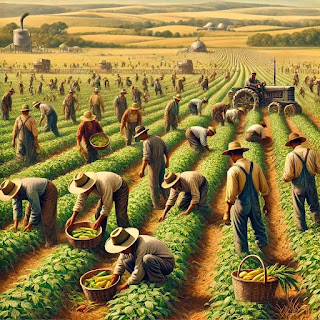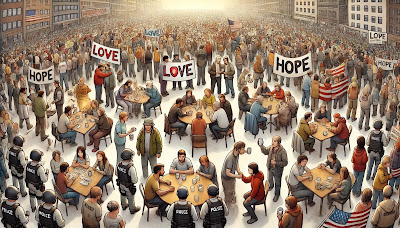The Shifting Ground of Immigration
Laws Change. That’s What Makes Immigration Insecure.
Immigrants know that laws can change. It’s what makes being an immigrant a little insecure. One can be perfectly legal and on the path to citizenship when something shifts.
To be fair, I’ll share an example from the Biden administration: at one point, a new rule required citizenship applicants to provide proof of having received the COVID vaccine. (When I moved here in 2003, I had to prove I didn’t carry tuberculosis—the law evolves.)
Why I Chose to Apply for Citizenship in 2015

I applied for my citizenship in 2015. There were several reasons that particular timeframe mattered to
me. Initially, I’d planned to do it between 2017 and 2018—when my existing green card was up for renewal and before my daughter turned 18, so she could legally gain citizenship with me.
But 2015 was also a moment when the political landscape shifted. At the time, there were still many Republican candidates in the primary race. Trump talked endlessly about immigration, and it wasn’t just about people crossing the border illegally. It was also about Syrian refugees.
Some of you may remember—some of you may have been among those who posted quite vehemently that they were not welcome. Some people I knew weren’t shy about the racial slurs they used toward them.
Trump’s Rhetoric and the Fear It Created
Trump spoke about changing immigration laws—who was "legal" and who was not. At the time, many people were still laughing at him. Even some who would later vote for him admitted how awful he was.
But people like me—people whose lives could change with a stroke of a pen—weren’t laughing. We were afraid.
Someone once said to me,
“You don’t have to worry. He doesn’t mean people like you.”
People like me? White? English-speaking? Christian? I fit in with the social norms, so I’m okay?
But Syrian refugees weren’t illegal, so the adage “We only mean illegal immigrants” didn’t hold up.
You can’t claim it’s only about illegal immigration when you’re freaking out over legal Middle Eastern immigrants. There’s more at play here, whether you admit it or not.
Legal Today, Illegal Tomorrow?
So why did I apply for citizenship in 2015? Because I knew there was a risk.
I feared Donald Trump, and I feared people who spoke out of both sides of their mouths. Would they stand up for me if a law changed and suddenly my visa was no longer valid?
Very doubtful.
A Constitutional Right Under Attack
Today, I watch with horror as a long-held constitutional right to citizenship is being deeply attacked—birthright citizenship.
If that can be taken away without the checks and balances woven into the fabric of the Constitution, then you can be damned sure any other right can be, too.
Any.
For me, having a “safe” green card wasn’t safe enough anymore. I became a citizen in 2015 because I didn’t trust Trump, even before he was the candidate.
It turns out, I was right not to trust him.
Who Will Stand Up When Legal Becomes Illegal?
And today, I feel betrayed by the many people who cheer these law changes.
I feel betrayed by former church friends who smile and say,
“It’s only the illegals.”
But when the laws shift and legal suddenly becomes illegal, you’ll say it’s all for the greater good.
Or am I wrong?
Will you stand up for us when proposed changes outlined in Project 2025 are rolled out?
You’ll tell me,
“But Danielle, it’s the law. I have to report the broken law.”
And I wonder—when did you lose your empathy? When did you lose your love for the least?
The Least Among Us
As I’ve said before, the least doesn’t always mean those without money or a home.
It also means those without legal protection, without hope, without job security.
But in return, you, too, have lost something. More than you realize.
Compassion.
Understanding.
Love.
So I pray that today, you are blessed—with a deep sense of compassion, justice, kindness, hope, and reality.
What Do You Think?
How do you feel about the way immigration laws can change overnight? Have you or someone you know been affected by shifting policies?
Let’s talk about it in the comments. I welcome open, honest, and respectful conversations.
If this post resonated with you, consider sharing it. The more we discuss these issues, the harder it becomes for those in power to quietly erode rights that affect real people.











